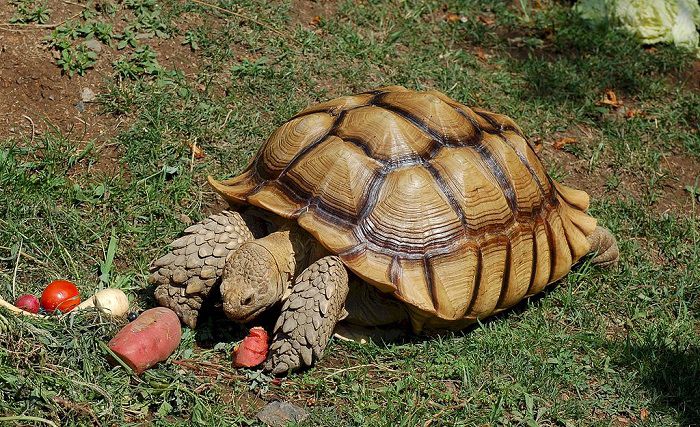Table of Contents
Contrary to widely held belief, tortoises can actually move about fairly quickly when their body temperature is warm. Indeed, you have probably noticed your tortoise moving about its enclosure, shoving obstacles out of its way as it explores. A healthy tortoise will walk about with its shell off the ground and will have strong muscles in its limbs.
What Can Cause Tortoises To Be Inactive?
If your tortoise had previously been moving about normally but has suddenly become inactive, there are a number of reasons this might have happened. The first of these is that it is too cold. It is crucial to provide a suitable temperature within your tortoise’s enclosure (I am obviously talking about tortoises kept indoors here). As a cold-blooded creature, your tortoise is unable to regulate its own temperature. It can only become as warm as the temperature around it. Moreover, since most tortoise species hail from warmer climes, it is up to you to provide the artificial heat it requires.
kept indoors here). As a cold-blooded creature, your tortoise is unable to regulate its own temperature. It can only become as warm as the temperature around it. Moreover, since most tortoise species hail from warmer climes, it is up to you to provide the artificial heat it requires.
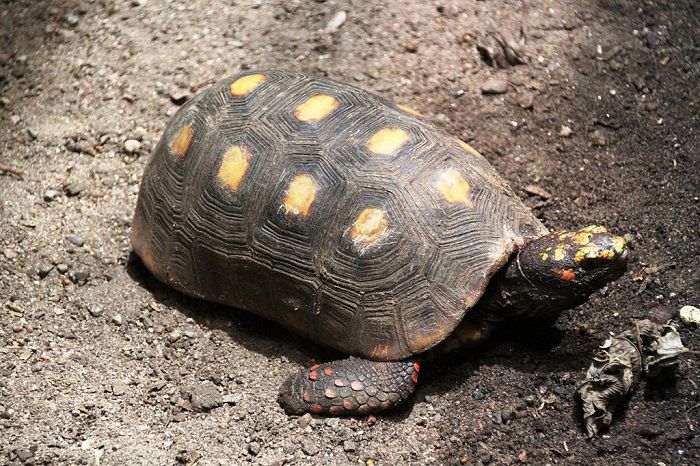
Red-Footed Tortoise 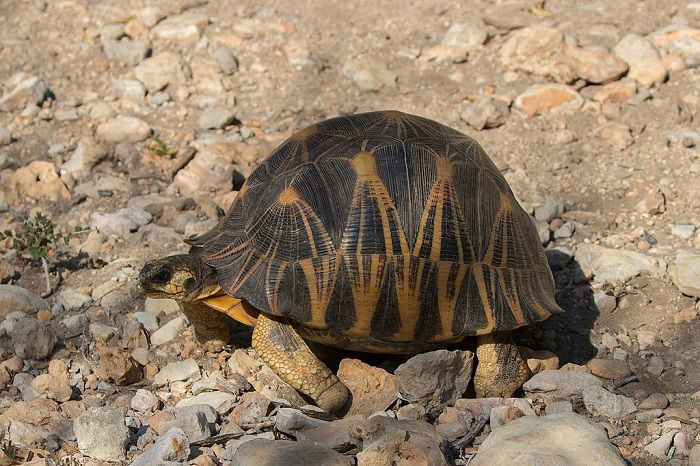
Radiated Tortoise 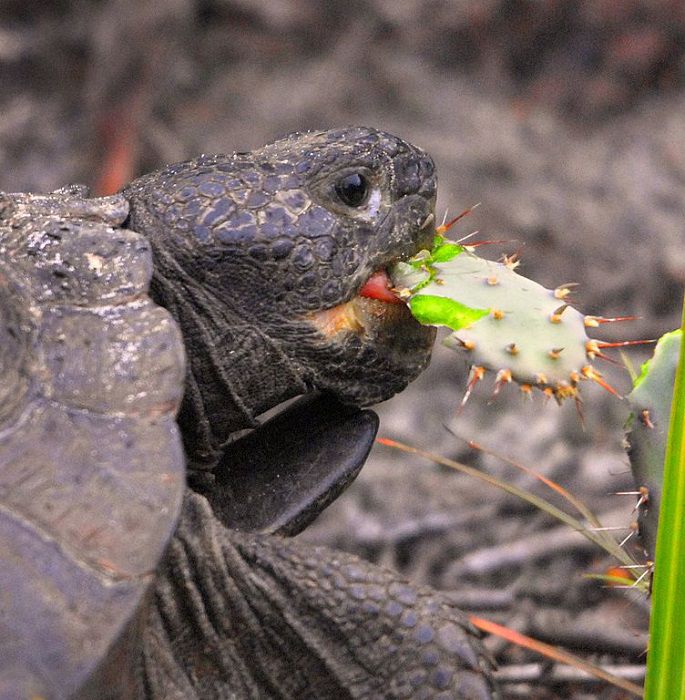
Gopher Tortoise
However, it is not as simple as heating your tortoise’s enclosure to a specific overall temperature; you must provide a temperature gradient in the enclosure with both a warm and cooler side. This allows your pet to move about its enclosure searching for warmer/cooler spots when it gets too hot or too cold.
If your tortoise’s body temperature drops too low, it will likely try to conserve energy and so will become inactive. At this juncture you might also find that it stops eating. This is the same process that happens during hibernation (which is a period of ‘rest’ that most, but not all, tortoises have every year).
Tip: Tortoise inactivity (i.e., not moving about much) might just be the case that your tortoise is getting ready to hibernate.
Tortoises often hibernate with the seasons, so when the days get shorter and the temperature drops, your tortoise might naturally want to hibernate (this will mainly affect those tortoises that are kept outdoors though). Hibernation is a natural process that ensures the health and wellbeing of these creatures. Nevertheless, you need to be aware that not all species of tortoise hibernate though.
Info: In general, Mediterranean tortoises tend to hibernate whereas tropical tortoises do not.
If you have a tropical tortoise that is sleeping too much and is not moving, it is probably best to contact a vet for advice.
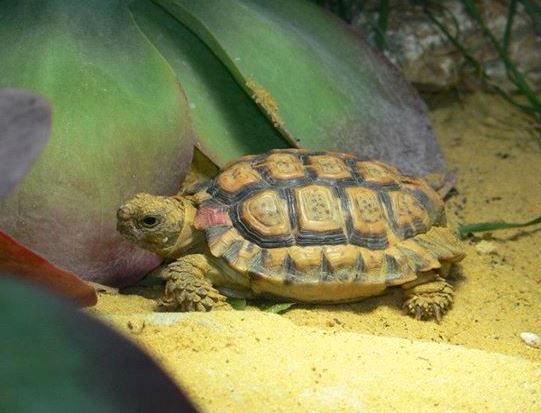
Speckled Cape Tortoise 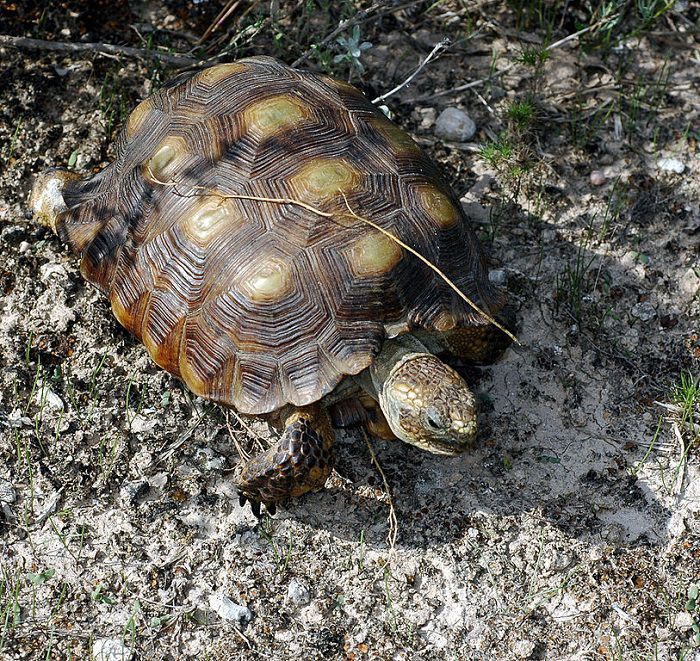
Texas Tortoise
Could Your Tortoise Be Ill?
Illness is another cause of inactivity in tortoises. If your tortoise is not hibernating but has stopped moving and eating, the best advice is to seek an expert opinion from a vet as soon as possible.
Tortoises are prone to respiratory illnesses and pneumonia, so it is necessary to be alert to the symptoms of such illnesses. For your information, these symptoms include:
- discharge around the nose and eyes
- difficulty breathing
- swollen eyelids
- lethargy
- loss of appetite.
If you notice that your tortoise has sunken eyes and swollen limbs, this is usually a sign of dehydration or malnutrition.
or malnutrition.
Tortoises are also susceptible to bone disease, parasites, and vitamin deficiencies and the first indication that any of these could be an issue include a loss of appetite and inactivity. If you are worried about your pet tortoise, I would advise that you contact your local vet as soon as possible.
Photo Credits:
- Featured Image (African Spurred Tortoise): Melissa Mitchell
 – CC BY-SA 3.0
– CC BY-SA 3.0 - Texas Tortoise: Clinton & Charles Robertson
 – CC BY-SA 2.0
– CC BY-SA 2.0 - Speckled Cape Tortoise: Abu Shawka – CC BY-SA 3.0
- Gopher Tortoise: Andrea Westmoreland – CC BY-SA 2.0
- Radiated Tortoise: Charles James Sharp
 – CC BY-SA 4.0
– CC BY-SA 4.0 - Red-Footed Tortoise: Bjoertvedt
 – CC BY-SA 3.0
– CC BY-SA 3.0

